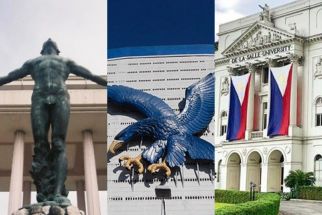BIR: Panama Papers could prompt tax probe
MANILA, Philippines – The so-called Panama Papers can serve as guide to the Bureau of Internal Revenue (BIR) in its tax investigations, the agency’s chief said yesterday.
“I have not read the Panama Papers yet, but if ever, it is a guide for the BIR where to look to determine if there is any tax liability or not,” Commissioner Kim Henares told The STAR.
While there have been no Filipinos named in the “Panama papers” contrary to earlier reports, the International Consortium of Investigative Journalism (ICIJ) is expected to release details in the coming days regarding personalities and institutions that have moved their wealth to tax havens.
In 2013, ICIJ released a separate investigation into offshore holdings, including those of Ilocos Norte Gov. Imee Marcos, her three sons, and Sen. Joseph Victor Ejercito.
Henares said the Panama Papers provide another reason for the Philippines to revisit its laws on bank secrecy and anti-money laundering.
Current laws, she said, include tax breaks that are “available to the rich to avoid payment of taxes.”
“We should lift the bank secrecy law for tax purposes to make sure there is a way for the BIR to monitor people to comply with their tax liabilities, make tax evasion a predicate crime for money laundering and rationalize fiscal incentives,” she said.
The global report, which has sparked investigations by governments from Europe to Asia, comes at a time when the Philippines is trying to deal with its own money laundering case involving $81 million.
Hackers – allegedly Chinese – stole the amount from the Bangladesh Bank account in the US Federal Reserve.
The money ended up in spurious accounts in the Rizal Commercial Banking Corp. and later in casinos in Manila.
Senate hearings on the case resumed yesterday. The Anti-Money Laundering Council has yet to complete its own probe.
Nestor Espenilla Jr., deputy governor of the Bangko Sentral ng Pilipinas, said banks are required to have “enhanced” know-your-customer (KYC) regulations when dealing with shell companies.
These entities, according to the ICIJ, acted as “shadow companies” for personalities such as Russian President Vladimir Putin and Chinese President Xi Jinping to hide their wealth from tax authorities.
“This means more than the normal KYC for both the entity and the beneficial owner, upon account opening,” Espenilla said in a separate text message.
“After account opening, transactions of high-risk customers such as these entities are subject to constant monitoring by banks for unusual activities,” he added.
On the government side, Henares reiterated the importance of exchange of information among different jurisdictions, which naturally fear getting blacklisted and thus are likely to be cooperative.
Currently, none of the 132 members of the Global Forum on Transparency and Exchange of Information is on the blacklist, although countries are in different stages of implementing automatic information exchange.
The Philippines, through Republic Act 10021 of 2010, allows tax information exchange, but only with prior request from an interested country.
Henares sits as vice-chair of the multilateral group drafting the treaty on Base Erosion and Profit Sharing (BEPS), which would give governments more power to tax cross-border and online transactions.
The Tax Management Association of the Philippines (TMAP), the industry group of tax practitioners, said earlier a BEPS treaty could help track down wealth in tax havens once implemented.
TMAP president Benedict Tugonon batted for lower income taxes supposedly to deter people and companies from hiding their earnings abroad.
“Lowering personal income tax rates in the Philippines may encourage Filipinos to voluntarily report their foreign income... or transfer their legitimate investments abroad to the Philippines,” he said in a text message last Monday.
But Henares rejected this. “I think if it is just lowering tax rates, mathematically, it will result in lower tax collection,” she said.
“I believe the basic complaint of people is that the compensation income earners are paying more than the businessmen and the rich. Therefore, lowering tax rate will not answer this,” she added.
Meanwhile, Ejercito said his being accused of keeping offshore holdings was a “rehashed issue” dredged up by his political enemies.
“It always crops up during the election period,” he said, referring to the ICIJ report.
“I don’t deny that (ICIJ report). Before I became a politician, I was a businessman first and that was 20 years ago – that is outside politics,” he said.
Ejercito said he found it baffling that of the 500 individuals found with suspicions offshore accounts, only he and members of the Marcos family were mentioned in the ICIJ report.
He claimed a political foe who is a “mining magnate” could be behind the release of the report.
“They have their own law firms, PR firms... so if they want to demolish us they can,” he said. – With Non Alquitran
- Latest
- Trending
































